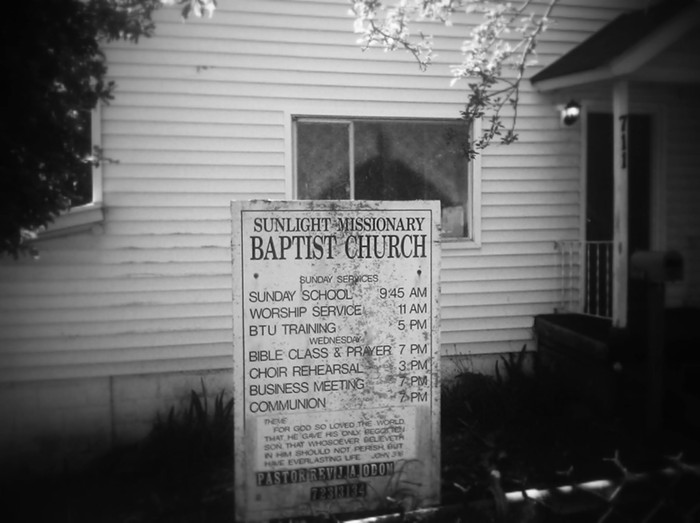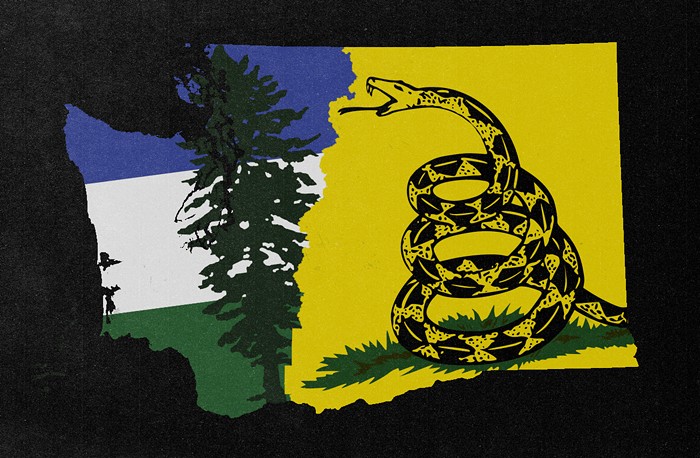
Nearly nine months ago, Google announced it would no longer sell political ads aimed at influencing Washington State's elections and ballot measure campaigns.
But over in Spokane, the second-largest city in Washington State, people trying to influence the outcome of a February 12 special election had no trouble purchasing thousands of dollars in Google ads.
Those ads related to Proposition 1, a plan to increase funding for Spokane police and fire services by raising local property taxes. Spokane's "Yes for Public Safety" campaign wanted Prop 1 approved, and to help achieve that aim it booked a $6,500 Google ad deal, including a plan to get its Google ads displayed more than a million times on Spokane desktop computers.
Only about 210,000 people live in Spokane. Only about 40,000 people actually ended up voting in this special election. When all the ballot counting was done, Prop 1 had been approved by more than 64 percent.
Not the first time
This is yet another instance of Google's apparent inability to stop selling political ads in Washington State, even though the tech giant says it won't accept such ads because it's not prepared to comply with this state's nation-leading transparency requirements.
Google launched its ban in June 2018. It's now approaching $20,000 in local political ad sales since the Washington State ban began.
Brandon Bacon, a Spokane Firefighter who managed the campaign to pass Prop 1, said he was aware of Facebook's ban on local political ads in Washington State (like Google, Facebook launched its ban in response to state disclosure requirements).
Bacon was aware, too, of Washington Attorney General Bob Ferguson's lawsuit last year against Facebook and Google over their failures to comply with this state's transparency rules. That lawsuit ended in a $455,000 settlement.
But Bacon said he didn't know that Google, like Facebook, had banned local political ads.
"We wanted to target our voters within the city and let them know why public safety is important to them," Bacon said, "and we wanted to reach out to them through any means we could."
Google has not responded to questions sent last week about its recent political ads sales in Spokane.
But in January, in response to a Stranger report on thousands of dollars in banned Google ads aimed at last fall's Washington State elections, company spokesperson Alex Krasov said Google's ban remains in effect and that "advertisers that submit these ads are violating our policies."
She added: "We take measures to block these types of ads—when we find violating ads, we remove them."
But Bacon believes Google isn't doing enough.
"If they’re not allowing them," he said, "I don’t know how we were able to do it."
More than a million impressions
His campaign's purchase of Google ads involved targeting people in Spokane with certain demographic characteristics that the campaign thought would make them more likely to vote in the February 12 special election.
Filings with the Washington State Public Disclosure Commission show the effort cost more than $6,500—although Bacon said that was the amount the campaign told Google it was willing to spend, and that the actual amount owed could end up being a bit lower because "the algorithm" didn't end up showing as many Google ads as the campaign had said it could.
As for why the "Yes for Public Safety" team sought more than a million ad impressions in a low-turnout special election in a city with only around 210,000 people, Bacon said: "You know the rule of seven? It takes seeing something seven times before you even notice it, really."
The "Yes for Public Safety" campaign also bought local newspaper ads and sent direct mail pieces to potential voters. Its greatest asset, however, may have been the lack of any organized opposition campaign to Prop 1 in the first place.
Even so, the ability of one side in a this Spokane ballot measure fight to purchase large numbers of banned Google ads raises a question that has surfaced before: By banning Washington State political ads, and then selling them to some local campaigns anyway, is Google providing those particular campaigns with an unfair competitive advantage?
Bacon said he believes Google should not only do a better job at enforcing its ad ban, but also fully comply with Washington State's strict political ad disclosure requirements.
“I think it’s important to know where the money’s coming from," Bacon said.















